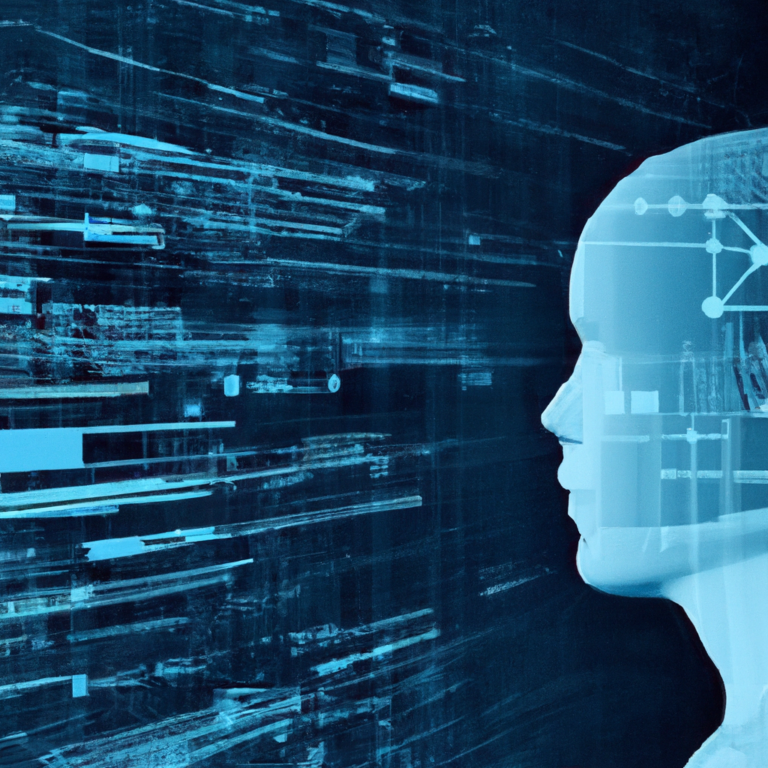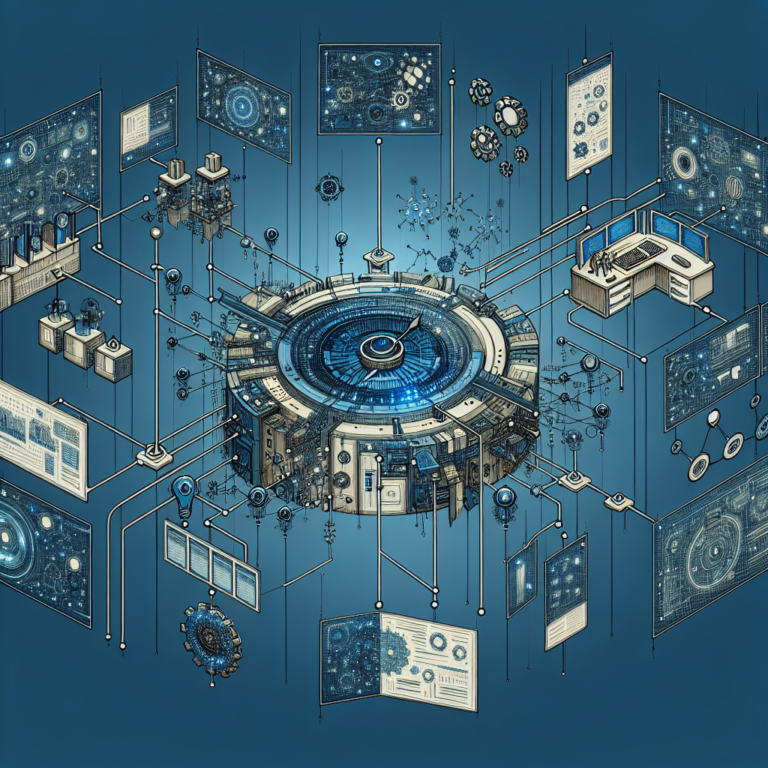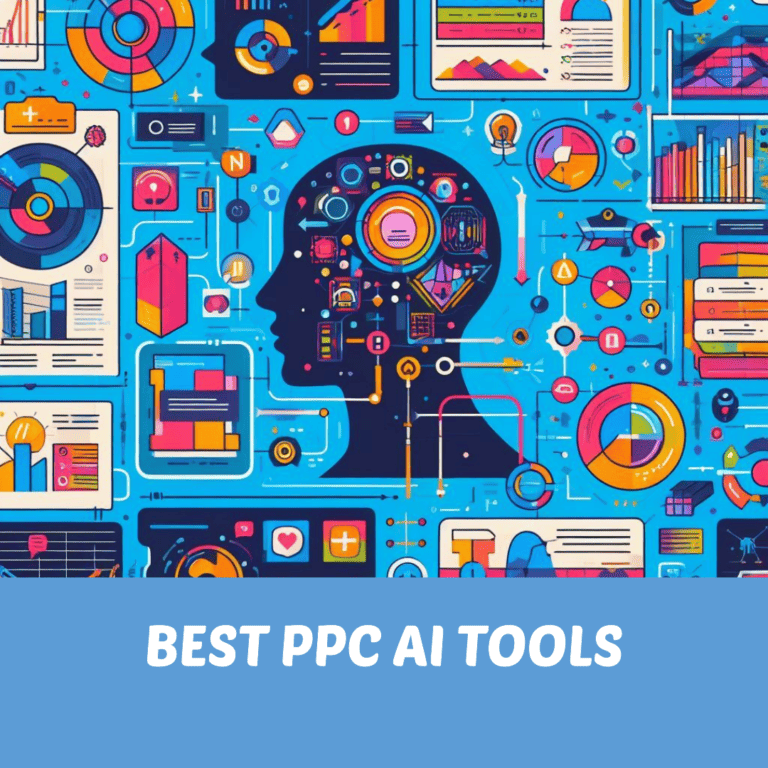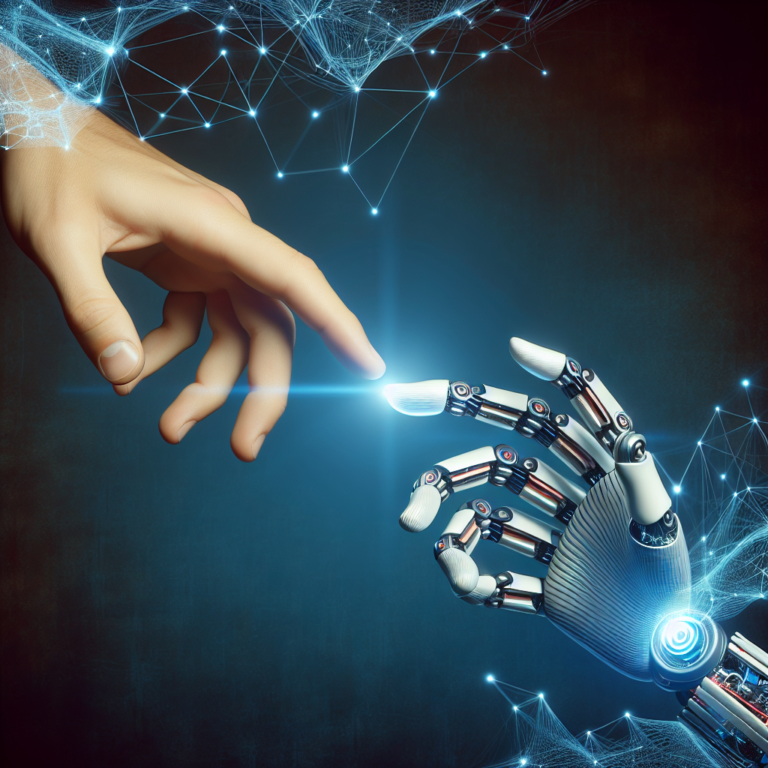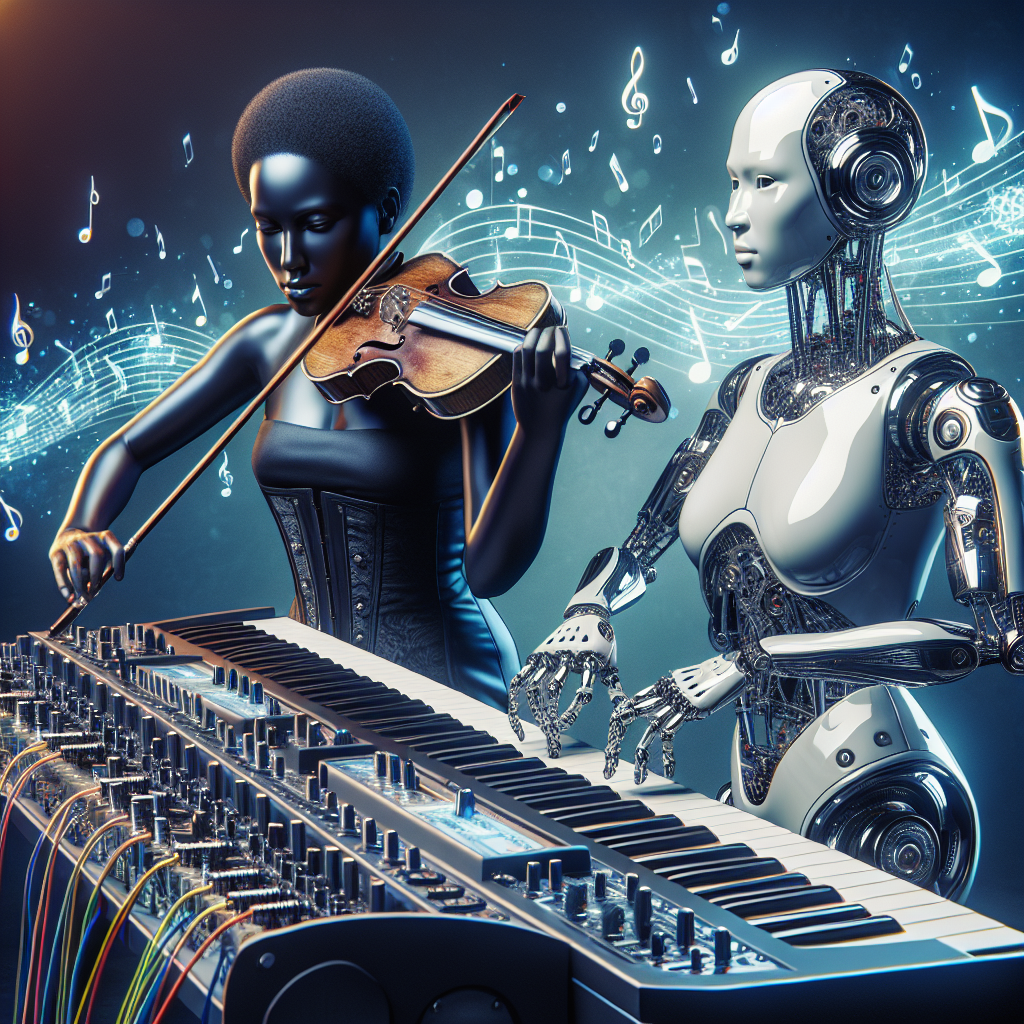
In this article, we will embark on an exciting journey to explore the fascinating impact of AI on the world of musical composition. As technology continues to evolve at an unprecedented rate, it has found its way into various creative fields, including art, music, writing, and more. We will delve into how AI is revolutionizing the way music is created, uncovering the possibilities and implications of this groundbreaking innovation. So, get ready to be amazed as we navigate through the realm where artificial intelligence and music collide, discovering the immense potential and endless opportunities it brings to the table.
AI in Music Composition
Introduction to AI in music composition
AI (Artificial Intelligence) has revolutionized various creative fields, including music composition. It is no longer limited to the realms of science fiction; AI is now a tangible tool that musicians and composers can use to enhance their creative process. By utilizing advanced algorithms and machine learning techniques, AI can generate melodies, harmonies, and even entire arrangements. In this article, we will explore the impact of AI on musical composition and its potential to revolutionize the way music is created and experienced.
Benefits of using AI in music composition
The integration of AI in music composition offers numerous benefits. Firstly, AI algorithms can analyze vast amounts of musical data, enabling composers to discover new patterns and ideas that they might have missed otherwise. This can serve as a valuable source of inspiration, helping musicians explore new musical styles and genres. Additionally, AI can generate melodies and harmonies that are highly complex and innovative, pushing the boundaries of creativity. This not only saves time for composers but also helps them navigate through creative blocks by providing fresh and unique ideas.
Challenges and limitations of AI in music composition
While AI has brought about significant advancements in music composition, it is not without its challenges and limitations. One of the major concerns is the fear that AI might replace human creativity entirely. However, it is important to view AI as a tool that enhances the creative process rather than replaces it. Another challenge is the ethical considerations surrounding AI-assisted composition. Questions arise regarding the ownership and copyright of AI-generated music, as well as the impact on the livelihood of human composers. These challenges call for careful consideration and collaboration between AI and musicians.
Collaboration between AI and Musicians
AI as a tool for musicians
AI serves as a powerful tool that musicians can use to augment their creative abilities. By using AI algorithms, musicians can experiment with different musical styles, structures, and arrangements that they might not have considered otherwise. AI can assist in generating musical ideas, providing composers with a vast array of possibilities to explore. It can also help in automating repetitive tasks, allowing musicians to focus on more complex and expressive aspects of composition. In this way, AI acts as a collaborator, supporting and expanding the creative capabilities of musicians.
Musicians embracing AI technology
The integration of AI in music composition has seen increasing acceptance and adoption among musicians. Many renowned artists have embraced AI as a creative tool, using it to enhance their compositions and performances. By collaborating with AI, musicians can unlock new levels of creativity, exploring innovative musical territories that were previously uncharted. As AI technology continues to evolve, more musicians are likely to recognize its potential and seek opportunities to incorporate it into their artistic process.
Ethical considerations in AI-assisted composition
As AI-assisted composition becomes more prevalent, ethical considerations come to the forefront. One of the primary concerns is the issue of ownership and copyright. Who should be credited as the creator of AI-generated music? Should it be the programmer who developed the AI system, the musician who used it, or the collaboration between the two? Additionally, there is a risk of AI-generated music leading to a homogenization of styles, as the algorithms tend to favor popular patterns and formulas. It is essential to maintain diversity and cultural representation in music, ensuring that AI does not undermine the richness and uniqueness of human creativity.
Role of AI in the Creative Process
AI as a source of inspiration
AI can act as an endless source of inspiration for musicians. By analyzing vast amounts of existing music, AI algorithms can identify patterns, chord progressions, and melodic structures, giving composers fresh ideas to explore. Additionally, AI can simulate different musical styles, allowing musicians to experiment and blend genres in ways that may have been unthinkable before. This ability to generate novel and unique ideas makes AI an invaluable tool, sparking creativity and pushing the boundaries of musical exploration.
Generating melodies and harmonies
One of the key advantages of AI in music composition is its ability to generate melodies and harmonies. Using advanced machine learning techniques, AI algorithms can analyze melodic and harmonic patterns from vast musical databases. This enables the generation of complex and innovative musical sequences that might not have been discovered through traditional composition methods. By augmenting the creative process with AI-generated melodies and harmonies, musicians can delve into new musical territories and create compositions that are truly one-of-a-kind.
AI-enhanced arrangement and production
AI’s contribution to music composition extends beyond melodies and harmonies. It can also assist in arranging and producing music. By analyzing existing compositions, AI algorithms can suggest optimal instrumentation, dynamics, and even sound textures. This not only saves time for composers but also provides an opportunity to experiment with different arrangements and production techniques. AI algorithms can also optimize the mixing and mastering process, ensuring that compositions sound polished and professional. Overall, AI’s involvement in arrangement and production enhances the quality and depth of musical compositions.
Exploring New Musical Styles and Genres
AI’s ability to analyze and mimic existing styles
One of the fascinating capabilities of AI in music composition is its ability to analyze and mimic existing musical styles. By studying vast databases of music, AI algorithms can identify the characteristics and patterns that define different genres. This enables musicians to explore and experiment with various musical styles in a more systematic and informed manner. AI can generate compositions that closely resemble specific genres, allowing musicians to incorporate elements from diverse styles into their own compositions.
Pushing the boundaries of musical creativity
AI has the potential to push the boundaries of musical creativity by challenging conventional notions and exploring new possibilities. By analyzing existing compositions and patterns, AI algorithms can identify trends and tendencies, opening up avenues for innovation and experimentation. Musicians can use AI as a tool to break free from established norms and explore unconventional ideas. This not only leads to the discovery of new musical styles and techniques but also fosters the evolution of music as an art form.
AI-generated music and copyright issues
As AI algorithms become more sophisticated in generating music, new challenges regarding copyright and ownership arise. If AI can produce music that is indistinguishable from that created by human composers, questions arise about the originality and uniqueness of AI-generated compositions. Copyright laws may require reevaluation to address these novel situations. Additionally, there is a need to ensure that AI-generated music does not infringe upon the intellectual property rights of existing compositions. Striking the right balance between protecting creativity and embracing AI’s potential will be crucial in navigating this aspect of AI in music composition.
AI Algorithms and Techniques in Music Composition
Machine learning and deep learning
Machine learning and deep learning are integral to AI algorithms used in music composition. Machine learning algorithms can analyze vast amounts of musical data, identify patterns, and generate new compositions based on the learned patterns. Deep learning algorithms, which employ artificial neural networks, are particularly effective in music composition tasks that require high-level understanding of musical structure and style. These algorithms can be trained on existing musical compositions, allowing them to generate original and stylistically coherent music.
Generative adversarial networks (GANs)
Generative adversarial networks, or GANs, have gained prominence in music composition. GANs consist of two neural networks: the generator network, which generates music, and the discriminator network, which evaluates the generated music for authenticity. The two networks engage in a feedback loop, with the generator network learning to create music that fool the discriminator network. This results in the generation of high-quality and authentic music compositions, as the generator network continually improves based on the feedback from the discriminator network.
Reinforcement learning for music composition
Reinforcement learning techniques can be applied to music composition, allowing AI algorithms to improve and refine their compositions through a process of trial and error. In reinforcement learning for music composition, the AI algorithm receives feedback on its musical output and adjusts its internal parameters accordingly. This iterative process helps the algorithm learn and improve over time, leading to the generation of more sophisticated and musically pleasing compositions. Reinforcement learning is particularly effective in enabling AI systems to understand musical dynamics, structure, and expression.
Implications for the Future of Music
Automated music creation and the role of human composers
AI’s influence on music composition raises questions about the role of human composers in the future. While AI algorithms can generate impressive and innovative compositions, the human touch and emotional connection are still vital in music. Human composers possess the ability to infuse their compositions with personal experiences, emotions, and intentions. Therefore, it is more likely that AI and human composers will collaborate, with AI serving as a valuable tool that supports and augments human creativity rather than replacing it entirely.
The impact of AI on the music industry
The integration of AI in music composition will undoubtedly have a significant impact on the music industry. AI algorithms can assist in generating commercially appealing music by analyzing patterns in popular compositions, potentially leading to the creation of hit songs. This has the potential to disrupt the traditional music production and publishing models. Additionally, AI algorithms can enable personalized music recommendations and tailored listening experiences, transforming how music is consumed and enjoyed by listeners.
Exploring new opportunities for musical collaboration
AI opens up new opportunities for collaboration between musicians and composers. Musicians can leverage AI algorithms to explore and experiment with different musical styles, allowing them to collaborate across genres and transcend traditional boundaries. Furthermore, AI can facilitate real-time improvisation and support performers on stage, blurring the line between human and AI creativity. This collaborative space between humans and AI holds immense potential for the creation of unique and groundbreaking musical experiences.
Addressing Concerns and Criticisms
Fear of AI replacing human creativity
The fear that AI will replace human creativity is a common concern. However, it is crucial to view AI as a tool that enhances human creativity rather than a substitute for it. AI can generate innovative ideas, unique compositions, and offer valuable insights, but it lacks the ability to experience emotions and possess human subjectivity. Human composers and musicians bring a depth of expression and individuality that cannot be replicated by AI. Therefore, the focus should be on leveraging AI as a collaborative tool that complements and elevates human creativity.
The importance of human emotion in music composition
Human emotions play a fundamental role in music composition and performance. Music has the power to evoke emotions, convey narratives, and connect on a deeply personal level. While AI can generate technically proficient compositions, it lacks the ability to experience emotions in the same way humans do. Emotion is a crucial aspect of music that cannot be overlooked or replaced. Therefore, human composers will continue to play an essential role in infusing music with the depth of emotion and meaning that resonates with listeners.
Ensuring diversity and cultural representation in AI-generated music
AI algorithms that analyze existing compositions and trends may be biased towards popular styles and established conventions. This can potentially limit the diversity and cultural representation in AI-generated music. It is crucial to address this concern by training AI algorithms on diverse and representative musical databases and incorporating ethical considerations when designing AI systems. By ensuring that AI is exposed to a wide range of musical influences, we can promote diversity and inclusivity in AI-generated music, avoiding homogenization and fostering a more inclusive musical landscape.
AI and Personalized Music Experiences
Creating music tailored to individual listeners
AI algorithms have the capability to analyze individual listening preferences and create music tailored to each listener’s unique tastes. By analyzing data on listening habits, music preferences, and contextual factors, AI can generate personalized music recommendations that align with individual preferences. This opens up new possibilities for listeners to discover music that resonates with their specific tastes and preferences, enhancing their overall music experience and creating a more immersive and personalized listening environment.
Enhancing user experiences through AI algorithms
AI algorithms can enhance user experiences in various ways. For instance, AI can analyze physiological data and emotional responses to music, enabling real-time adjustments to the music being played to align with the listener’s mood and preferences. Additionally, AI can generate dynamically adaptive music that responds to the listener’s engagement and interaction, creating a more interactive and immersive musical experience. These AI-driven enhancements have the potential to revolutionize how music is experienced, making it more engaging, tailored, and emotionally resonant.
New possibilities for interactive and immersive musical performances
AI algorithms can transform musical performances into interactive and immersive experiences. By analyzing real-time data from performers and the audience, AI can dynamically respond and adapt the music being played. This opens up new avenues for improvisation and collaboration between human performers and AI systems, blurring the line between human and AI creativity. Furthermore, AI can augment performances with visual and multimedia elements, creating multisensory experiences that captivate and engage the audience on a whole new level.
AI in Live Performances and Improvisation
Real-time AI assistance for performers
AI can provide real-time assistance to performers during live performances. By analyzing the input from the performers, such as the melody, harmony, rhythm, or even the audience’s response, AI algorithms can generate accompanying parts, harmonizations, or improvisations that augment the live performance. This collaboration between AI and performers not only enhances the overall musical experience but also expands the possibilities for creativity and improvisation in real-time settings.
AI and improvisation in collaborative settings
Improvisation is a dynamic and spontaneous process, and AI can contribute to this aspect of music-making. AI algorithms can analyze existing musical patterns and styles, generating suggestions or responses that complement the ongoing improvisation. This collaborative improvisation between human performers and AI can create unique and unexpected musical moments, with the AI system responding to the human performer’s ideas while also introducing novel and innovative musical ideas of its own.
Blurring the line between human and AI creativity
The integration of AI in live performances and improvisation blurs the distinction between human and AI creativity. In collaborative settings, the AI system becomes an active participant, generating ideas, responding to human performers, and introducing new musical elements. This challenges traditional notions of authorship and creativity, emphasizing a symbiotic relationship between humans and AI. The resulting music becomes a product of shared creativity, combining the unique expressive capabilities of human musicians with the computational power and innovative potential of AI algorithms.
Conclusion
In conclusion, AI has had a profound impact on musical composition, transforming how music is created and experienced. By acting as a source of inspiration, generating melodies and harmonies, and enhancing the arrangement and production process, AI has expanded the creative possibilities for musicians. Furthermore, AI has opened up new avenues for exploring musical styles and genres, pushing the boundaries of creativity and challenging established norms. However, it is important to address concerns such as the fear of AI replacing human creativity and ensuring diversity and cultural representation in AI-generated music. Looking ahead, AI has the potential to revolutionize personalized music experiences, live performances, and improvisation, blurring the line between human and AI creativity. As AI technology continues to evolve, it will be exciting to witness the further advancements and collaborations that shape the future of music composition.

